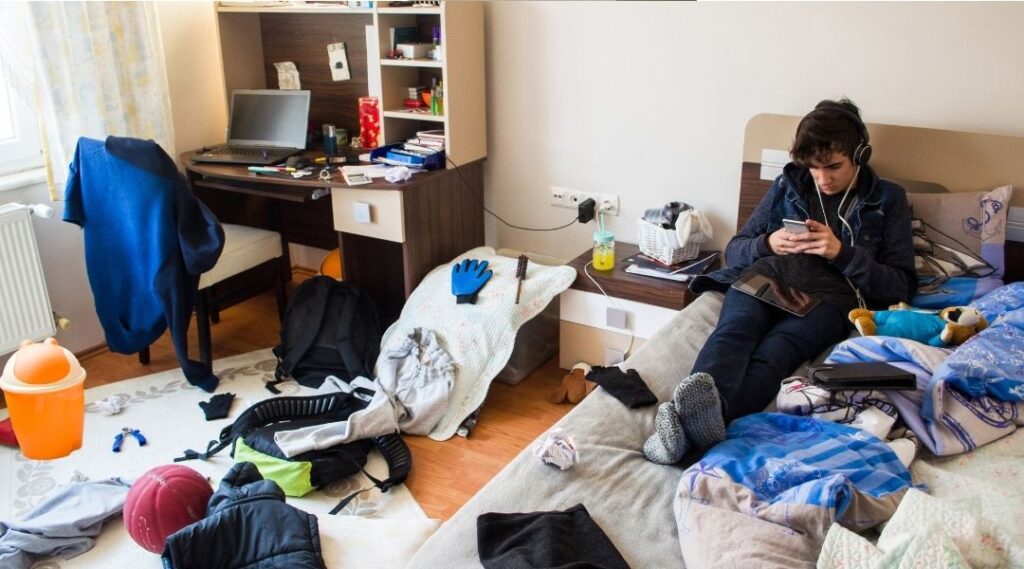More and more people are choosing to emigrate to Spain or buy a holiday home. This makes sense: the climate, relaxed lifestyle, and favorable house prices make Spain extremely attractive. However, you often hear stories about okupas – the Spanish term for squatters – which can raise concerns.
Fortunately, new rules have been introduced in recent years that better protect homeowners. In this article, we explain how the legislation works, what has changed, and how you can reduce the risk of squatters yourself.
The Situation before the New Rules
Until recently, squatters in Spain often had surprisingly strong legal standing.
- Procedures to reclaim a property could take months.
- Police often could not intervene directly, as it became a civil matter once squatters were inside.
- For homeowners with a holiday home, this posed a significant risk: if the property was vacant for several months, the chance of it being misused increased.

The New Rules against Squatters (Okupas) in Spain — What Changes in 2025
In Spain, as of April 3, 2025, an important amendment to the Ley Orgánica 1/2025 has come into effect, strengthening the approach to squatters (okupas) and allowing for faster evictions. chalarisabogados.com+2spain-costas.es+2
Here are the main changes, plus nuances to be aware of:
Legal Acceleration: Fast-Track Trials and Eviction within 15 Days
- The new law adds the crimes of allanamiento de morada (breaking and entering / trespassing in an occupied home) and usurpación (unlawful use / occupation of a holiday home or vacant property) to the fast-track trial (juicio rápido) procedure.
- From the moment the case is presented, the court must decide on eviction within 15 days — unless well-founded legal objections are raised.
- In cases of allanamiento de morada, when it concerns a home that is occupied or considered the primary residence, the police can intervene within 24 to 48 hours if the request is made with clear evidence.
Increased Penalties and Burden of Proof
- The law toughens penalties for repeat offenders: fines, and in some cases even prison sentences when violence or intimidation is used.
- Under the new regulations, there is a greater emphasis on the burden of proof for the squatter: the occupier must prove that they have a legal right — such as a rental contract — otherwise, the chance of eviction is higher.
Differences between Primary Residence and Holiday Home / Second Home
- The law distinguishes between a property that serves as a primary residence and properties that are temporarily or rarely occupied (such as holiday homes). A stricter approach often applies to holiday homes.
- Before the amendment, squatters could often benefit from the fact that legal protection for primary residences was stronger; now it becomes legally easier to address second homes as well.
Procedure and Legal Steps
As an owner, you can be better prepared by knowing how the process now works:
- Quick Declaration / Report
As soon as you notice an unauthorized break-in, file a report with the police as quickly as possible. Acting fast increases the chance of eviction through the accelerated procedure. - Presentation of Evidence
Ensure you can provide your proof of ownership (escrituras), drawings, photos of the property beforehand, etc. - Request for Interim Measures
You can ask the judge for an interim measure to have the squatters removed from your property before the procedure is completed. - Procedure Within 15 Days
The judge must make a ruling within 15 days. After that, the eviction must be carried out.
Limitations & Points of Attention
- This new law does not apply to cases of rent arrears (defaulters) where the person already legally occupied the property. Such cases remain under civil tenancy law.
- If the squatter claims vulnerability (e.g., minors, situation of social vulnerability), social services must be involved, which may potentially delay the procedure.
- In practice, delays still exist due to an overburdened legal system, many objections by squatters, and slow judicial processing. There are doubts whether the “15 days” standard is always achievable.
- The law applies to occupations from April 3, 2025; older cases often still fall under the old regulations.
Practical Tips for Homeowners
New rules provide more certainty, but prevention is always better. With these tips, you reduce the chance of problems:
- Don’t leave your property unguarded: the longer a house stands empty, the more attractive it is to squatters.
- Good security: consider sturdy locks, an alarm, or smart lighting.
- Make arrangements with neighbors: they can signal if something suspicious happens.
- Ensure regular checks: a property that is visibly maintained appears less vulnerable.
The Role of a Keyholder
Many homeowners choose to engage a keyholder. A keyholder has a key to the property and can perform regular checks.
A keyholder can, for example:
- Check the property for break-ins or damage.
- Be a contact person for neighbors or police.
- Intervene directly or raise the alarm in suspicious situations.
- Inform you with photos and reports, so you can be at ease even from a distance.
At VB Keycare, we offer professional key management and property management. This way, you can be sure that your property is safe, even when you’re not there yourself.
Learn more?
Want to know exactly what we can do for you? Then check out:
- Our service area on the Costa Blanca
- Our transparent rates
- More about who we are: About us
With a reliable keyholder, you prevent unpleasant surprises and can enjoy your property in Spain worry-free.
